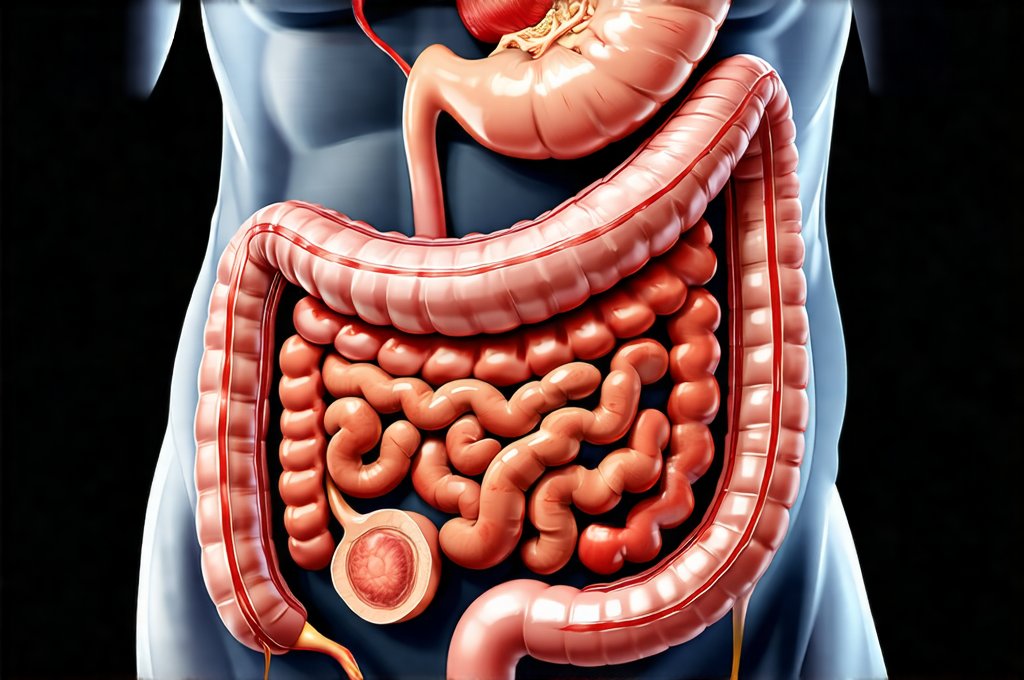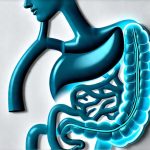The digestive system is arguably one of the most consistently working systems in our bodies, quietly processing everything we consume to provide us with essential nutrients and energy. As we age, this intricate network undergoes numerous changes that can significantly impact its efficiency and function, often leading to a range of gastrointestinal issues. These alterations aren’t necessarily signs of illness but rather natural consequences of years of use, coupled with potential lifestyle factors and accumulated wear-and-tear on the body’s tissues. Understanding these age-related shifts is crucial for maintaining digestive health and proactively addressing any discomfort or complications that may arise.
These changes are often gradual and can vary widely between individuals, influenced by genetics, diet, physical activity, medication use, and overall health status. While some modifications are subtle and don’t cause noticeable symptoms, others can lead to significant disruptions in digestion and absorption, impacting quality of life. This is where conditions like Gastroesophageal Reflux Disease (GERD) become more prevalent with age, often exacerbated by the natural aging process itself. It’s essential to recognize that digestive health isn’t just about preventing illness; it’s about maintaining optimal nutrient intake, energy levels, and overall well-being as we navigate the later stages of life. Considering how digestive function changes over time is key to staying healthy.
Age-Related Changes in the Digestive System
As we age, the entire digestive tract experiences a decline in functional capacity. This begins with changes to oral health, often stemming from gum disease or ill-fitting dentures, which can hinder chewing efficiency and initial food breakdown. Saliva production also tends to decrease, making it harder to moisten food and initiate enzymatic digestion. Moving down the line, the esophagus itself may lose some of its muscle tone and peristaltic strength – the wave-like contractions that propel food downward. This reduced motility can lead to slower transit times and an increased risk of heartburn or acid reflux.
The stomach is also affected by aging. Gastric emptying slows down, meaning food stays in the stomach for longer periods. While this isn’t always problematic, it can contribute to feelings of fullness, bloating, and discomfort. Furthermore, there’s a natural decline in the production of hydrochloric acid, which is vital for breaking down proteins and killing harmful bacteria. This reduction in acidity can impair nutrient absorption and potentially increase susceptibility to infections. The small intestine, where most nutrient absorption takes place, also experiences changes – villi (the tiny finger-like projections responsible for absorption) may become flattened or less numerous with age, reducing the surface area available for efficient nutrient uptake.
Finally, the large intestine undergoes alterations in motility and bacterial composition. Constipation becomes more common as intestinal contractions weaken and fiber intake often decreases. The microbiome – the community of bacteria living in our gut – also shifts, potentially leading to imbalances that can affect digestion and immune function. Understanding these interconnected changes is key to supporting digestive health throughout life. These aren’t isolated events; they are a cascade of modifications affecting the entire process. In fact, changes to gut microbiota often occur as we age.
GERD and Aging: A Complex Relationship
Gastroesophageal Reflux Disease (GERD) isn’t solely an age-related condition, but its prevalence significantly increases with age. This is partly due to the natural changes occurring in the digestive system that we’ve already discussed – namely, reduced esophageal motility and lower production of stomach acid. However, it’s also linked to other factors common in older adults, such as medication use (some medications can relax the lower esophageal sphincter), increased body fat which puts pressure on the abdomen, and a general decline in muscle tone throughout the body. The lower esophageal sphincter (LES) is a muscular ring at the bottom of the esophagus that prevents stomach acid from flowing back up; if it weakens or relaxes inappropriately, reflux occurs.
Aging can also contribute to hiatal hernias, where part of the stomach pushes through the diaphragm into the chest cavity. This can weaken the LES and increase the likelihood of GERD symptoms. Chronic exposure to stomach acid can damage the esophagus over time, leading to complications like esophagitis (inflammation of the esophagus) or Barrett’s esophagus – a precancerous condition. Symptoms of GERD often include heartburn, regurgitation, difficulty swallowing, chest pain, and chronic cough. While occasional heartburn is common, frequent or severe symptoms warrant medical attention.
It’s important to note that diagnosing GERD in older adults can sometimes be challenging. Symptoms may overlap with other conditions, and the presentation can differ from younger individuals. For instance, atypical symptoms like chest pain might be mistaken for heart problems. Effective management of GERD involves lifestyle modifications, dietary changes, and potentially medication, tailored to the individual’s needs and overall health status. You should also consider how dairy may impact your digestive sensitivity.
Lifestyle Modifications for Digestive Health in Aging
Making proactive lifestyle adjustments can significantly mitigate the impact of age-related digestive changes and manage GERD symptoms. Here are some key strategies:
- Dietary Adjustments: A diet rich in fiber – from fruits, vegetables, whole grains, and legumes – is crucial for promoting regular bowel movements and preventing constipation. Limiting processed foods, excessive sugar intake, and fatty foods can also reduce digestive discomfort. For GERD sufferers, identifying and avoiding trigger foods (e.g., caffeine, alcohol, chocolate, spicy foods) is essential. Smaller, more frequent meals are often easier to digest than large ones.
- Hydration: Staying adequately hydrated is vital for overall health and plays a key role in digestive function. Water helps soften stool, preventing constipation, and aids in the breakdown of food. Aim for at least eight glasses of water per day, unless otherwise advised by a healthcare professional.
- Regular Exercise: Physical activity stimulates intestinal contractions, promoting motility and reducing constipation. Even moderate exercise, such as walking or swimming, can have significant benefits. Maintaining an active lifestyle is paramount for optimal digestive health. Additionally, exercise helps maintain a healthy weight which reduces pressure on the abdomen.
Managing GERD Through Dietary Changes
Diet plays a critical role in managing GERD symptoms. Beyond simply avoiding trigger foods, there are specific dietary patterns that can offer relief:
- Low-Fat Diet: Fatty foods slow down stomach emptying and increase acid production, exacerbating reflux. Reducing fat intake is often the first line of defense.
- Smaller Meals: Overeating puts pressure on the LES, increasing the risk of acid reflux. Eating smaller, more frequent meals throughout the day can help prevent this.
- Elevated Head of Bed: Raising the head of your bed by 6-8 inches using blocks or a wedge pillow can help prevent stomach acid from flowing back up into the esophagus while you sleep. This is especially effective for nighttime GERD symptoms.
- Avoid Late Night Eating: Allowing at least 2-3 hours between your last meal and bedtime gives your stomach time to empty, reducing the risk of reflux during sleep.
The Role of Probiotics and Gut Health
The gut microbiome – the complex community of bacteria living in our digestive tract – plays a crucial role in overall health, including digestion and immunity. As we age, changes in diet, medication use (especially antibiotics), and reduced stomach acid production can disrupt this delicate balance, leading to dysbiosis (an imbalance in gut bacteria). Probiotics, live microorganisms found in fermented foods or supplements, can help restore a healthy gut microbiome.
- Foods rich in probiotics include yogurt, kefir, sauerkraut, kimchi, and kombucha.
- Probiotic supplements are available, but it’s essential to choose a reputable brand and consult with a healthcare professional before starting supplementation.
- Promoting a diverse and balanced gut microbiome can enhance digestion, improve nutrient absorption, and strengthen the immune system. Are plant milks easier to digest than traditional dairy?
While probiotics show promise for supporting digestive health in aging individuals, more research is needed to fully understand their benefits and optimal usage. It’s important to remember that probiotics are not a cure-all and should be used as part of a holistic approach to digestive health, including lifestyle modifications and dietary changes. The impact of artificial sweeteners on the gut microbiome should also be considered.


















